Best Ad tracking and marketing attribution software
Introduction
Ad tracking software allows marketers to monitor the performance of individual ads or entire campaigns in real-time. It collects data on key metrics such as impressions, clicks, conversions, and engagement rates. Marketing attribution software goes a step further by analyzing the customer journey and assigning credit to various touchpoints that lead to a conversion.
All marketing attribution platforms offer varying features and pricing models to suit different business needs and budgets. Their capabilities may be superficially similar, but different ad tracking software tools would perform vastly different in different businesses.
When comparing ad tracking and marketing attribution platforms, it's important to consider these key features:
- Does the platform provide only built-in tracking and attribution reporting, integrations with ad platforms, or both?
- Does your funnel use more than one e-commerce platform or CMS? If so, does the ad tracking software you're choosing support all of them?
- Do you need cross-domain tracking?
- Does the entire purchase happen on your website or on a third-party's (such as via a Stripe payment link)? If so, can the attribution solution aggregate the data from both channels?
- What attribution data are being sent to the ad platforms? Will they receive customer details, click identifiers or both?
- Can the data be exported automatically to a data warehouse such as BigQuery?
- If any customers first contact you on the phone, does the platform support call tracking in addition to the web?
- How would the cost change if your revenue or traffic increases tenfold, even if for a short period of time?
In this comparison, our digital marketing experts examine some of the top ad tracking and marketing attribution software available, highlighting their strengths, unique features, and potential limitations to help you find the best solution for your organization's specific requirements.
Able CDP
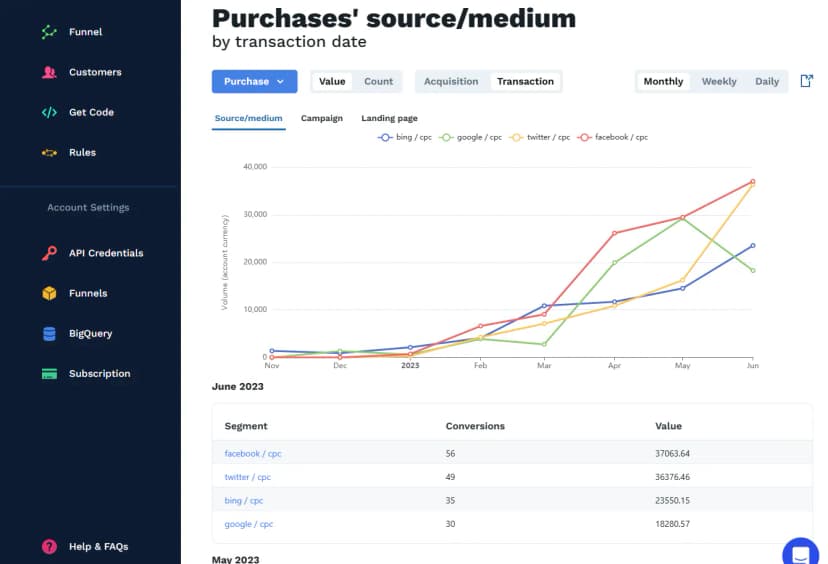
| Price | $49/month ($145/month with conversions API integrations) for up to 300,000 processed events per month, $5 for each additional 100,000 events above first 500,000 events tracked; no revenue-based cap or fees |
| Sends conversions to ad platforms | Yes, attributed to the original click ids. Supports Meta Ads, Google Ads, TikTok and Pinterest |
| Channels | Web, call tracking (using CallRail and similar third-party products), mobile app tracking (requires custom integration) |
| RoAS reporting | Built-in revenue attribution reporting, reporting via ad platforms' conversions APIs, custom reporting using third-party BI platforms via BigQuery data warehouse |
| Cookieless tracking | Native cookieless tracking of single-page applications and third-party checkouts like Stripe payment links; cookieless attribution of offline conversions based on previously tracked lead sources |
| Data export | Real-time BigQuery events export; manual reports export to CSV |
Able Customer Data Platform is designed to provide a clear view of customer journeys by integrating website tracking data with server-side sources. It allows businesses to track full customer journeys from initial ad clicks to purchases or Stripe conversions, accurately attributing 99% of purchases to the correct marketing source. Able CDP supports instant setup with no credit card required and automatically recognizes forms used on the website to create custom tracking codes. This platform integrates with various marketing tools, including Google Analytics, Facebook (Meta) Conversions API, and Google Ads, to assist in ad platform optimization and create lookalike audiences in real-time. Additionally, Able CDP can send conversions to Google Analytics and ad platforms, enabling businesses to understand how customers buy and how segments perform across campaigns, even with low-volume experimental conversion data.
One of the key benefits of Able CDP is its ability to provide actionable data. This information helps businesses improve their marketing efforts by identifying which channels are most effective. For instance, Able CDP has helped businesses determine that certain marketing channels, such as display ads, are not performing well, allowing them to focus on more profitable options like paid search. The platform's attribution capabilities unlock AI/ML ad delivery optimization, enhancing digital marketing outcomes. Overall, Able CDP offers a solution for businesses looking to improve their marketing strategy by providing insights into customer behavior and marketing performance.
Able CDP remains a competitive option in the market, offering a cost-effective solution for businesses looking to refine their marketing attribution and optimize their marketing campaigns.
Would you like to try Able CDP? Sign up for a free trial
AnyTrack
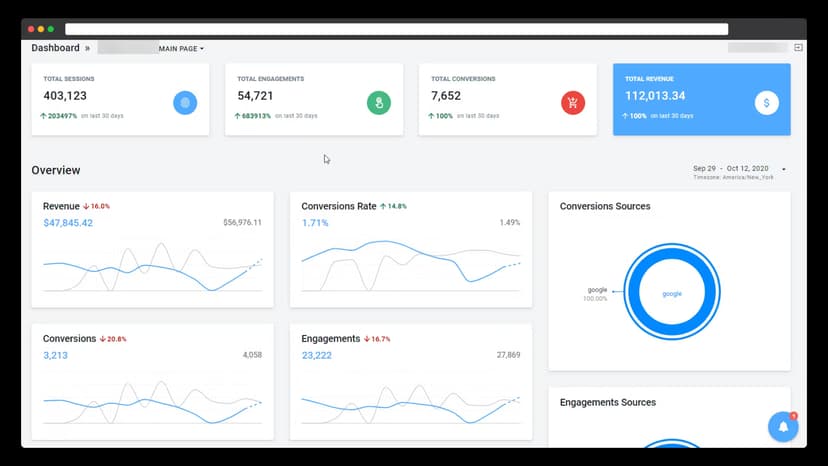
| Price | $50/month for up to 50K sessions, $300/month for 500K-3M sessions |
| Sends conversions to ad platforms | Google Ads, Facebook, TikTok, Taboola. Only one is included on a cheaper plan |
| RoAS reporting | Not available |
| Data export | Not available |
AnyTrack is a real-time ad tracking software that assists digital marketers in tracking, attributing, and syncing conversions with their Ads Managers. It integrates with various platforms, including ecommerce sites, comparison websites, lead generation funnels, and affiliate networks, providing a clear view o...
Cometly
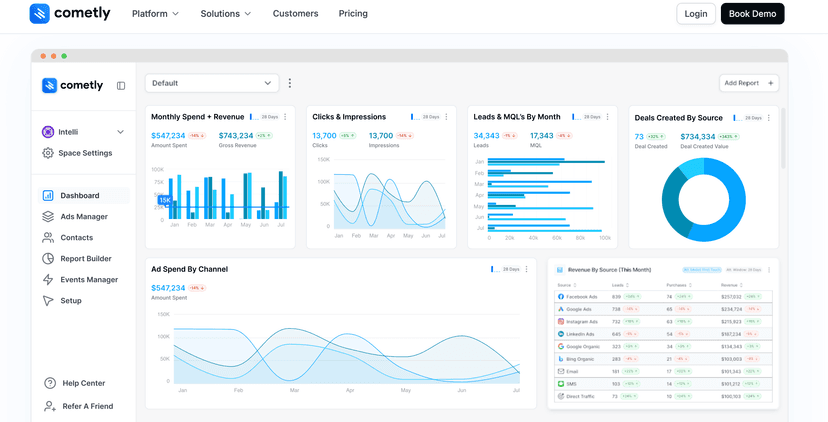
| Price | Starts at $500 per month |
| Sends conversions to ad platforms | Yes |
| Channels | Web |
| RoAS reporting | Built-in |
| Cookieless tracking | Not available |
| Data export | Manual export of summary reports to Excel only |
Cometly is a marketing attribution software that helps businesses track and analyze their marketing campaigns. It enables users to monitor key events and conversions in their marketing and sales funnels, providing insights into customer journeys and buying intent. Cometly's analytics platform allows users to ...
Dreamdata
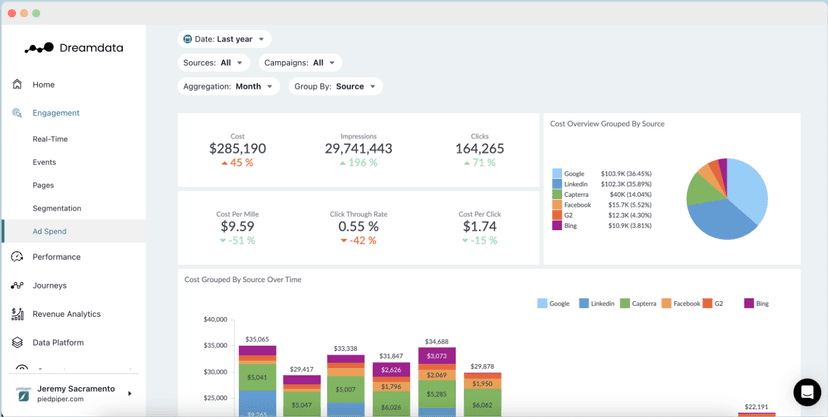
| Price | From $999/month (billed annually) |
| Sends conversions to ad platforms | LinkedIn and Google Ads - hashed emails and other PII only |
| Channels | Web |
| RoAS reporting | Available on paid plans |
| Data export | BigQuery, Snowflake and Redshift; only available on a $2,499/month plan and higher |
Dreamdata is a B2B revenue attribution platform that helps businesses connect data across their go-to-market (GTM) martech stack and gain insights into their customers' journeys. The platform enables users to run custom account-based attribution models to track, measure, benchmark, and predict revenue from di...
GA Connector

| Price | $97/month for 50K page views, $397/month for 300K page views |
| Sends conversions to ad platforms | Not available, Google Analytics only |
| Channels | Web |
| RoAS reporting | Via Google Analytics only |
| Cookieless tracking | Not available |
| Data export | Via Google Analytics only |
GA Connector is a software that integrates Google Analytics with various Customer Relationship Management (CRM) systems, allowing users to track marketing return on investment (ROI). It imports CRM data into Google Analytics, enabling the creation of closed-loop reports that link customer purchases to specifi...
Hyros
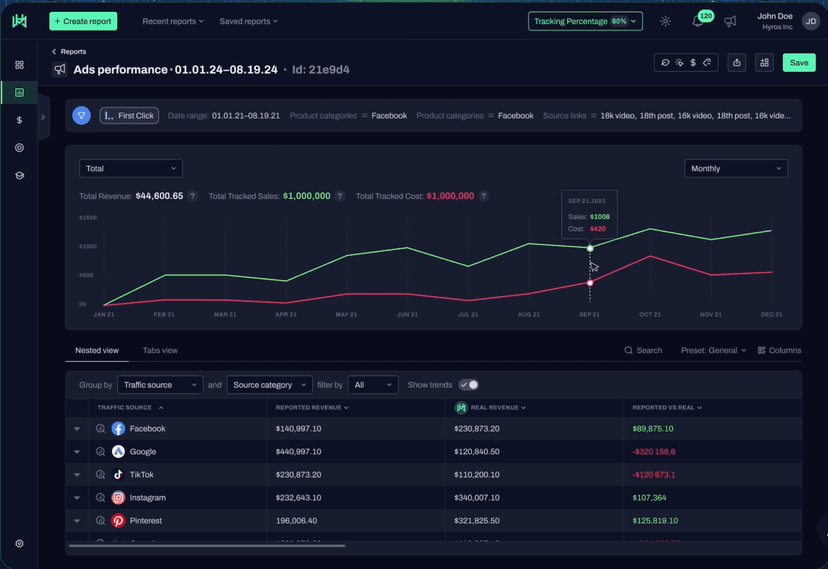
| Price | Bespoke pricing based on tracked revenue, ranging $369 - $4,200 per month |
| Data export | Siloed data, only integrations with ad platforms are available |
| RoAS reporting | Built-in |
Hyros is an ad-tracking platform designed to provide insights into customer journeys and ad performance. It allows businesses to track every step of a customer's journey, from initial interactions to conversions, and offers detailed reports on ad performance. Hyros combines print tracking and AI ad learning t...
Ruler Analytics
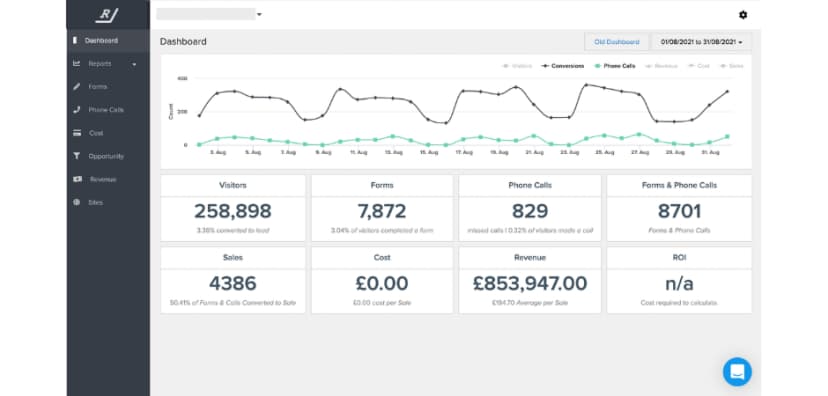
| Price | From £199/month for up to 5,000 monthly visits, from £1149/month for 100,000 monthly visits |
| Sends conversions to ad platforms | Adwords, Facebook Ads |
| Channels | Web, call tracking |
| RoAS reporting | Built-in |
| Data export | BigQuery, Redshift, Snowflake - individual events only |
Ruler Analytics is a marketing attribution platform designed to help businesses track and measure the impact of their marketing campaigns. It is particularly useful for small to large-sized companies looking to enhance their marketing efforts. The software provides a clear view of customer journeys, allowing ...
Supermetrics
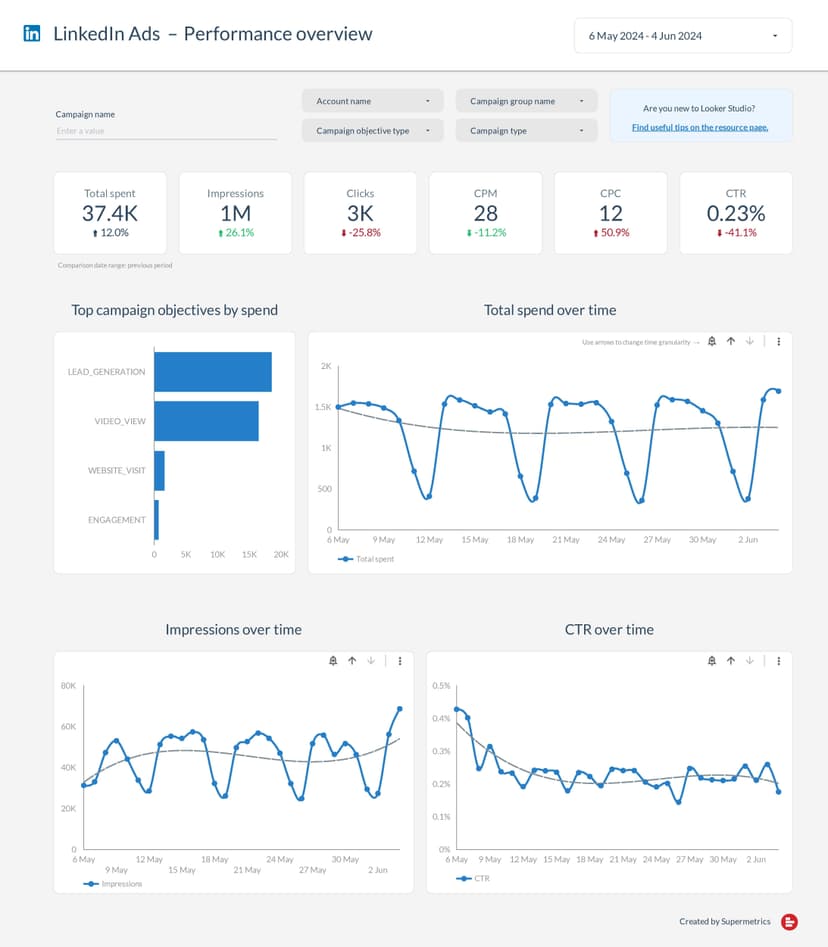
| Price | Bespoke pricing based on product features being used |
| Sends conversions to ad platforms | Not available |
| Channels | Web |
| RoAS reporting | Built-in |
| Data export | BigQuery, Redshift, other data warehouses and BI tools |
Supermetrics is a data integration platform that consolidates data from various marketing sources. It enables users to connect and transfer data from over 100 platforms, including Google Ads, Facebook Ads, and Google Analytics, into a centralized location. This functionality helps businesses eliminate manual ...
ThoughtMetric

| Price | $99/month for 50,000 page views; $399/month for up to 300,000 page views per month |
| Channels | Web |
| RoAS reporting | Built-in |
| Data export | Manual CSV export |
ThoughtMetric is a marketing attribution software designed to assist e-commerce businesses in understanding and optimizing their marketing performance across various channels. It integrates with major e-commerce and marketing platforms, enabling users to connect data, track ads, a...
Triple Whale
| Price | Revenue-dependent, $120 - $3,799 per month |
| RoAS reporting | Built-in only |
| Sends conversions to ad platforms | Not supported, the only available integrations with ad platforms are to retrieve data from them |
| Channels | Web only |
| Data export | Built-in data exploration with a proprietary flavor of SQL language |
| Cookieless tracking | Not advertised |
Triple Whale is a marketing attribution platform that helps businesses identify which campaigns are driving results. It features multiple built-in attribution models, including the Triple Attribution model, which credits the last ad interaction on each platform before a conversion. This model is useful for an...
TrueROAS
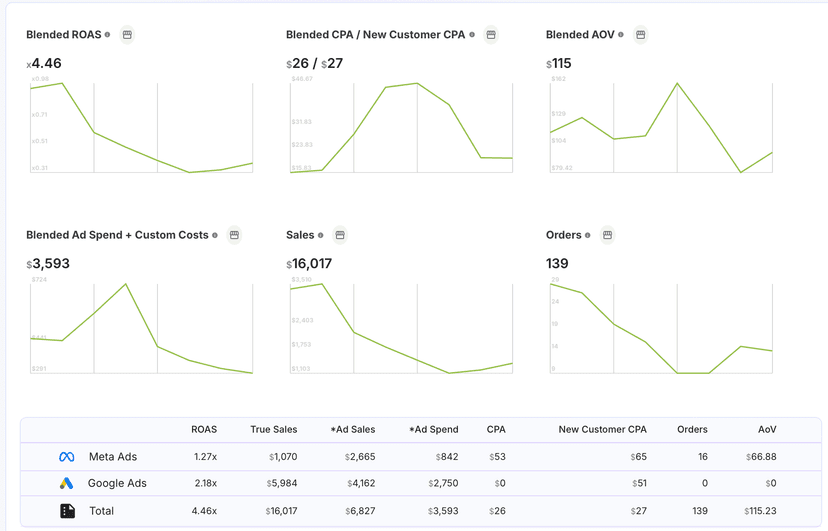
| Price | Value-based, start from $129/mo above $10,000 monthly revenue, increasing to $899 and higher |
| Sends conversions to ad platforms | Not supported |
| Channels | Web only |
| RoAS reporting | Built-in only |
| Cookieless tracking | Not available |
| Data export | Not available |
TrueROAS is a marketing attribution software that measures the return on ad spend (ROAS) for each marketing channel. TrueROAS uses algorithms to consider the interactions between various marketing touchpoints. This approach assigns credit for conversions based on the actual impact of each channel rather than ...
Wicked Reports
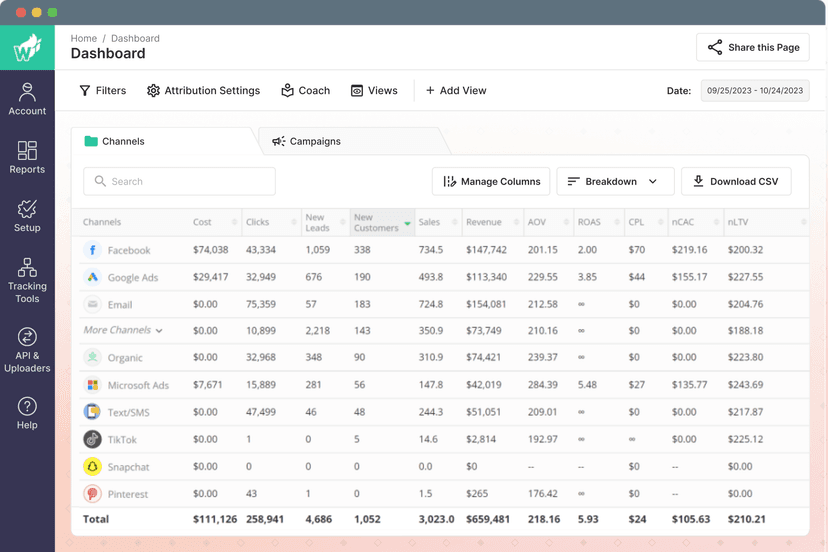
| Price | Value-based, starts at $250 |
| Sends conversions to ad platforms | Only compatible with a subset of conversion sources, doesn't specify what information is sent |
| Channels | Web, call tracking |
| RoAS reporting | Built-in |
| Cookieless tracking | Not available |
| Data export | Not available |
Wicked Reports is marketing attribution software designed to provide accurate insights for digital marketers. It offers a range of features, including custom attribution models, advanced filtering, and on-demand insights. The platform integrates with various CRM, cart, and ad platforms, allowing for tracking ...
About the authors
This comprehensive guide on the best ad tracking and marketing attribution software was compiled by a team of experienced digital marketing experts at Able CDP. Our team combines years of hands-on experience in digital marketing, data analytics, and technology solutions to provide you with insightful, accurate, and practical information.
Methodology
When preparing the comparison of the best ad tracking and marketing attribution software providers, our experts follow cutting edge qualitative research methodology (for an overview, see, for example, Research Methods for Business Students, (Saunders et al, 2019)). The source data analyzed during the preparation of this comparison includes:
- facts and statements published on the reviewed providers' websites at the time when they're accessed;
- interviews with digital marketers having first-hand experience of using the aforementioned software;
- published secondary sources.
While we strive to keep the page up-to-date, it is possible that the changes to the services listed above may occur that are not reflected immediately. If you notice any inaccuracies or outdated information, please contact us.